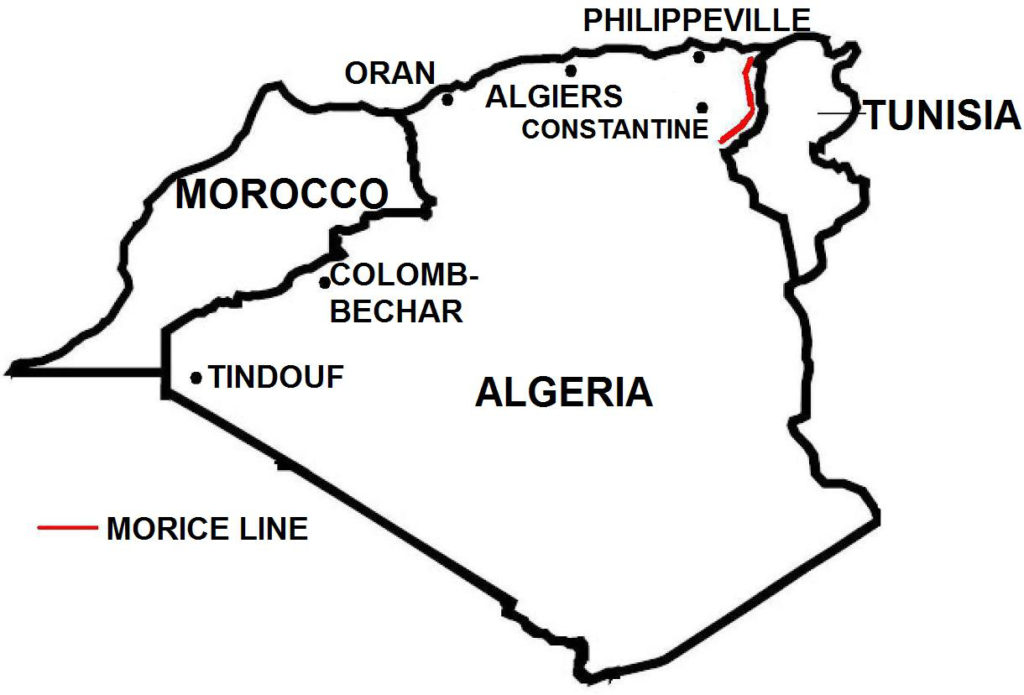On December 14, 1960, the United Nations General Assembly (UNGA) passed Resolution 1514 (XV) titled “Declaration of the Granting of Independence to Colonial Countries and Peoples”, which established decolonization as a fundamental principle of the UN. Five days later, on December 19, the UN released UNGA Resolution 1573 that recognized the right of self-determination of the Algerian people.
On January 8, 1961, in a referendum held in France and Algeria, 75% of the voters agreed that Algeria must be allowed self-determination. The French government then began to hold secret peace negotiations with the FLN. In April 1961, four retired French Army officers (Generals Salan, Challe, André Zeller, and Edmond Jouhaud, and assisted by radical elements of the pied-noir community) led the French command in Algiers in a military uprising that deposed the civilian government of the city and set up a four-man “Directorate”. The rebellion, variously known as the 1961 Algiers Putsch (French: Putsch d’Alger) or Generals’ Putsch (French: Putsch des Généraux), was a coup to be carried out in two phases: taking over authority in Algeria with the defeat of the FLN and establishment of a civilian government; and overthrowing de Gaulle in Paris by rebelling paratroopers based near the French capital.

(Taken from Algerian War of Independence – Wars of the 20th Century – Volume 4)
De Gaulle invoked the constitution’s provision that gave him emergency powers, declared a state of emergency in Algeria, and in a nationwide broadcast on April 23, appealed to the French Army and civilian population to remain loyal to his government. The French Air Force flew the empty air transports from Algeria to southern France to prevent them from being used by rebel forces to invade France, while the French commands in Oran and Constantine heeded de Gaulle’s appeal and did not join the rebellion. Devoid of external support, the Algiers uprising collapsed, with Generals Challe and Zeller being arrested and later imprisoned by military authorities, together with hundreds of other mutineering officers, while Generals Salan and Jouhaud went into hiding to continue the struggle with the pieds-noirs against Algerian independence.
On April 28, 1961, in the midst of the uprising, French military authorities test-fired France’s first atomic bomb in the Sahara Desert, moving forward the date of the detonation ostensibly to prevent the nuclear weapon from falling into the hands of the rebel troops. The attempted coup dealt a serious blow to French Algeria, as de Gaulle increased efforts to end the war with the Algerian nationalists.
In May 1961, the French government and the GPRA (the FLN’s government-in-exile) held peace talks at Évian, France, which proved contentious and difficult. But on March 18, 1962, the two sides signed an agreement called the Évian Accords, which included a ceasefire (that came into effect the following day) and a release of war prisoners; the agreement’s major stipulations were: French recognition of a sovereign Algeria; independent Algeria’s guaranteeing the protection of the pied-noir community; and Algeria allowing French military bases to continue in its territory, as well as establishing privileged Algerian-French economic and trade relations, particularly in the development of Algeria’s nascent oil industry.
In a referendum held in France on April 8, 1962, over 90% of the French people approved of the Évian Accords; the same referendum held in Algeria on July 1, 1962 resulted in nearly six million voting in favor of the agreement while only 16,000 opposed it (by this time, most of the one million pieds-noirs had or were in the process of leaving Algeria or simply recognized the futility of their lost cause, thus the extraordinarily low number of “no” votes).
However, pied-noir hardliners and pro-French Algeria military officers still were determined to derail the political process, forming one year earlier (in January 1961) the “Organization of the Secret Army” (OAS; French: Organisation de l’armée secrète) led by General Salan, in a (futile) attempt to stop the 1961 referendum to determine Algerian self-determination. Organized specifically as a terror militia, the OAS had begun to carry out violent militant acts in 1961, which dramatically escalated in the four months between the signing of the Évian Accords and the referendum on Algerian independence. The group hoped that its terror campaign would provoke the FLN to retaliate, which would jeopardize the ceasefire between the government and the FLN, and possibly lead to a resumption of the war. At their peak in March 1962, OAS operatives set off 120 bombs a day in Algiers, targeting French military and police, FLN, and Muslim civilians – thus, the war had an ironic twist, as France and the FLN now were on the same side of the conflict against the pieds-noirs.
The French Army and OAS even directly engaged each other – in the Battle of Bab el-Oued, where French security forces succeeded in seizing the OAS stronghold of Bab el-Oued, a neighborhood in Algiers, with combined casualties totaling 54 dead and 140 injured. The OAS also targeted prominent Algerian Muslims with assassinations but its main target was de Gaulle, who escaped many attempts on his life. The most dramatic of the assassination attacks on de Gaulle took place in a Paris suburb where a group of gunmen led by Jean-Marie Bastien-Thiry, a French military officer, opened fire on the presidential car with bullets from the assailants’ semi-automatic rifles barely missing the president. Bastien-Thiry, who was not an OAS member, was arrested, put on trial, and later executed by firing squad.
In the end, the OAS plan to provoke the FLN into launching retaliation did not succeed, as the Algerian revolutionaries adhered to the ceasefire. On June 17, 1962, the OAS the FLN agreed to a ceasefire. The eight-year war was over. Some 350,000 to as high as one million people died in the war; about two million Algerian Muslims were displaced from their homes, being forced by the French Army to relocate to guarded camps.
